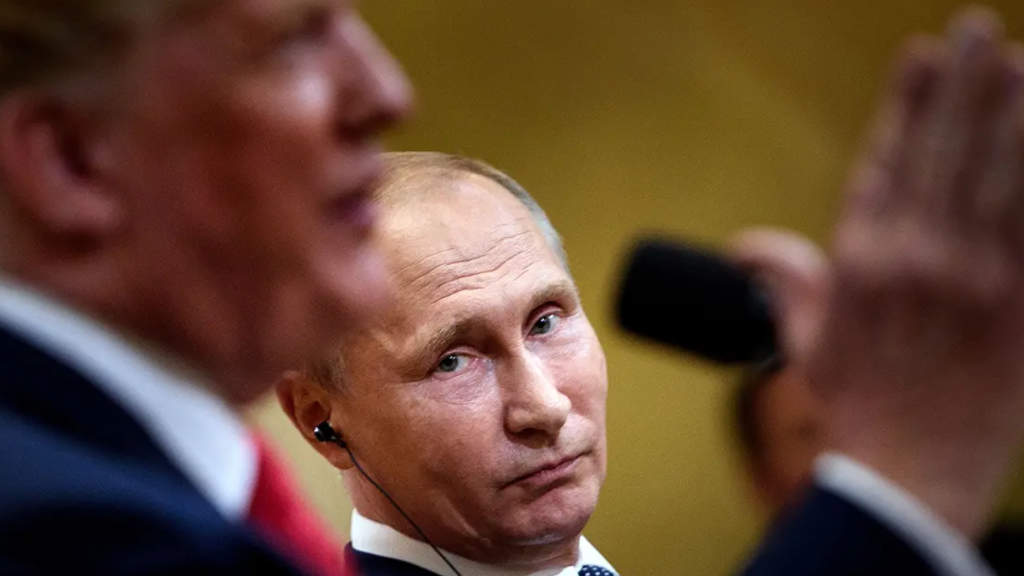An emerging downside of the United States and European Union imposition of sanctions upon Russia is that the bilateral trade volumes between them have deteriorated so much that threats of tariffs to reduce bilateral trade with Moscow have become degraded.
With US-Russia bilateral trade for 2024 reaching US$3.7 billion, Russia now trades 25% more than this with Azerbaijan, a country with a population of just 10.1 million. This is why, with President Trump stating on Wednesday that “I have no other choice but to put high levels of Taxes, Tariffs, and Sanctions on anything being sold by Russia to the United States, and various other participating countries” the words ring hollow.
In the phrase “other participating countries” Trump is presumably referring to the members of the European Union, in addition to the United Kingdom, Australia, Canada and New Zealand, but again, the ability to seek political leverage by threatening tariffs has been retarded. EU-Russia bilateral trade is now at about €65 billion. That, while still significant, is largely made up of Russian exports of gas and fertilizers, both essential commodities for the EU. In addition, India now has a larger trade partnership with Russia than the European Union. As for the UK, its bilateral trade with Russia has dropped to just £2 billion per annum. Russia’s trade with remote Kyrgyzstan is nearly double this, meaning any London trade leverage over Russia is now insignificant.
It remains ambiguous if President Trump really understands the impact of raising tariffs. With US-Russia bilateral trade so small in any event, such an impact would be negligible, although not for the EU, whose gas purchases from Russia have been increasing. Additional tariffs on Russian gas and fertilizer purchases would lead to an increase in energy and food consumer prices and add to EU inflationary pressures.
So this then begs the question about why Trump made such threats? Our position is that Trump knows precisely the negligible impact they would have. In which case, this mean the statements – guaranteed to gain headlines – are really for Western public consumption to suggest he will be strong in upcoming discussions with the Russian President. In reality, he needs to sell a deal somehow to the United States electorate. Much of his discussions with Putin therefore is likely to be how much Trump can get away with in terms of portraying himself as a successful Ukraine-Russia ‘deal-broker’. Accolades are at stake for Trump, who is known to covet the Nobel Peace Prize. To win that, he needs to deal with Putin and on the face of it, appear to win concessions. That, partially, is to Russia’s benefit in terms of having a US President grateful to President Putin for allowing the Nobel Peace Prize to make its way to Trump. Rather more difficult is the actual concession’s aspect, where Putin has already claimed parts of the Donbass as part of the Russian Federation, and where it will be difficult for him to withdraw.
A red herring here that could allow Russia to keep its territorial gains but also be good for the United States would be the creation of a de-militarized zone between the Russia and Ukraine borders. Russia gets its territory and security, while a frightened EU gets a buffer, monitored by EU (not NATO) soldiers with the EU continuing to purchase American military equipment. Everyone (except Ukraine) wins – the US generates more income from the situation and Russia keeps the Donbass.
If correct, it means that the manner in which the Ukraine conflict can be simultaneously settled in Trump’s favour, and in Russia’s interests at the same time will ultimately be down to a matter of perception. Both are subject to their respective domestic social attitudes. Ironically, it might actually work in Russia’s favour that Russian media is largely blocked in the West – Russian perceptions concerning a Ukraine deal will not be seen much in the US or EU (although Western media in contrast is largely available in Russia). It remains a delicate, and fascinating balance to achieve. What is also apparent is that any deal ultimately revolves around which ‘perspectives’ Putin and Trump are able to concoct. Additionally apparent is that neither the European Union, nor the erstwhile Ukrainian President Zelensky will be allowed anywhere near whatever the two Presidents manage to cook up. What is likely to transpire will in effect be a bizarre end to a conflict largely created by the United States Biden administration and encouraged by Europe. The history books are unlikely to be kind – to anyone, except perhaps a Nobel Peace Prize Winning Donald J. Trump.

 Русский
Русский













